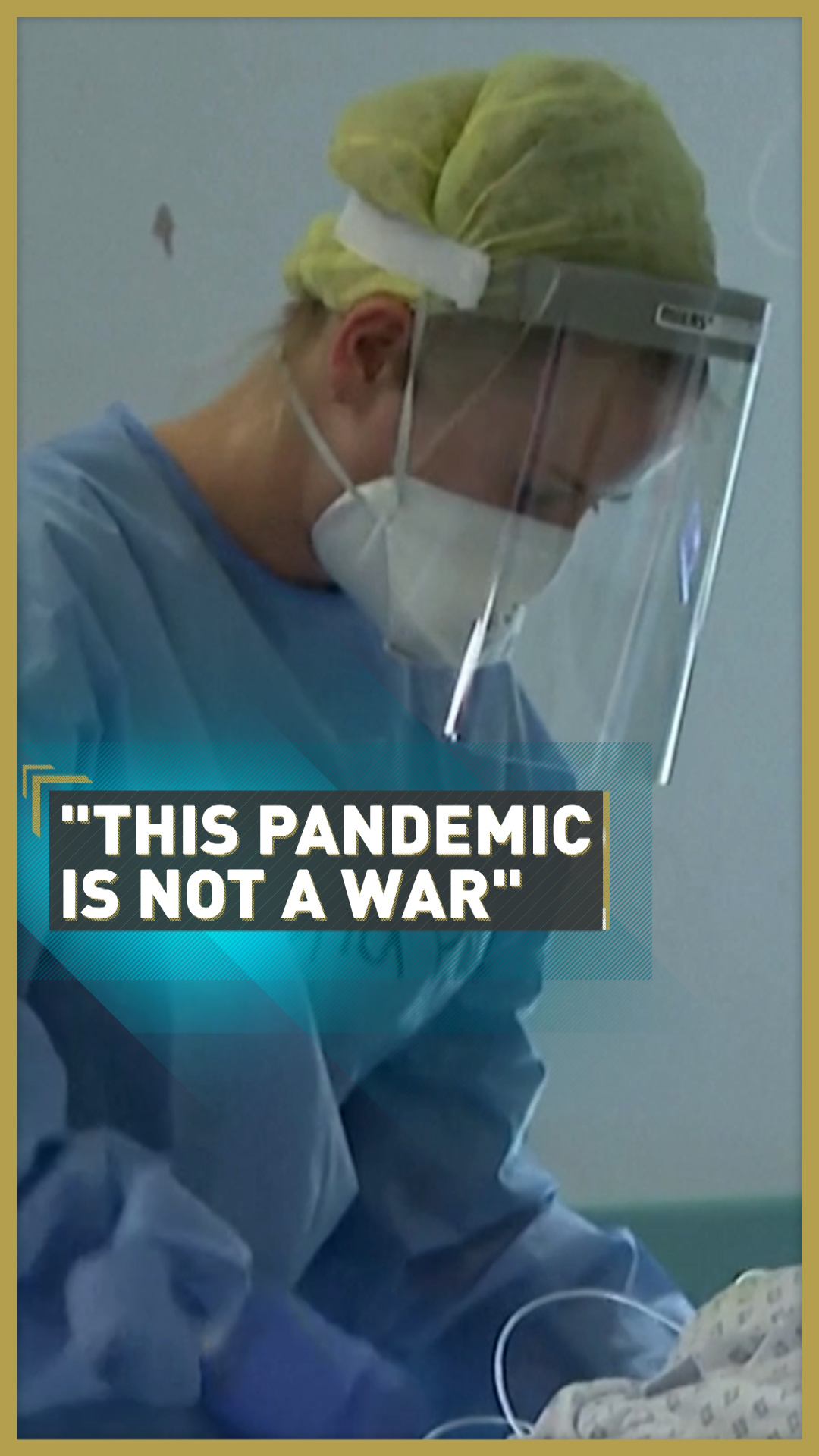
Javid Abdelmoneim has been treating COVID-19 patients at London hospitals. /CGTN
Javid Abdelmoneim has been treating COVID-19 patients at London hospitals. /CGTN
Intensive care doctor Javid Abdelmoneim feels it is wrong to use military terms such as "battles" and "front lines" to describe how the UK's NHS is tackling the COVID-19 outbreak.
Abdelmoneim has worked for Medecins Sans Frontieres, treating patients in military conflicts including in Syria. He says there is a big difference between man-made conflicts and viruses.
"I do on a very personal level disagree with a lot of the militaristic war descriptions that have been used throughout the UK press – this is a war, this is a battle we are on the front line, staff are being redeployed," said the doctor who has been treating COVID-19 patients at London hospitals.
01:46

"On a very personal level I don't agree with that way of describing what we are going through, basically because fundamentally war is a human construction that we choose to be in and the pandemic is nothing that we have chosen to be in and so in that very basic, fundamental way I don't call it a war and I disagree it is like being in Raqqa or being in Syria or any other war."
Abdelmoneim does, though, feel there are strong similarities, from his experiences, of tackling COVID-19 and Ebola – and especially the sense of a lack of certainty.
"The similarities, though, for me are on the very personal level, with staff and patients who potentially feel a lack of control over what is happening," he said.
"There is also, of course, especially a feeling with this as there was with Ebola that it is an incurable disease that no one is immune to, and where healthcare staff feel a certain degree of exposure that they don't necessarily feel in ordinary circumstances. So on that very level, there are huge similarities to the work I have previously done with Ebola."